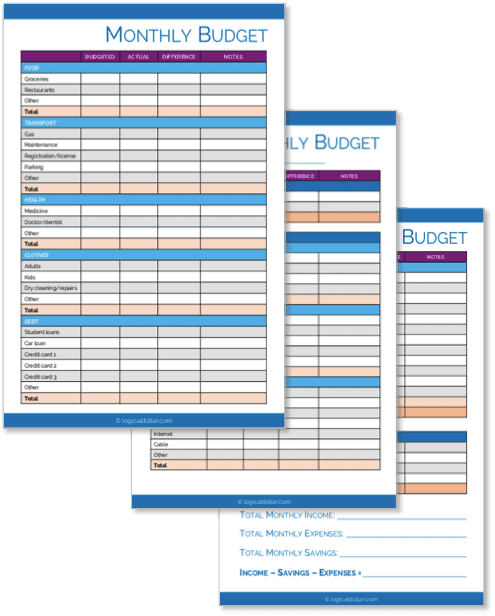Everyone says you’re supposed to do it but when you’re pushing yourself to change your financial habits, it can be good to have some clarity on just why you should save money.
After all, it can be tough to change these habits, especially when it’s pretty fun to just spend what you earn! And yet you keep hearing about the importance of saving money…
Well, this is because, without a doubt, all those personal savings articles are right: the advantages of saving money easily outweigh any disadvantages.

TAKE BACK CONTROL OF YOUR FINANCES
Our free budget planner will help you to quickly and easily take control of your money – instead of it controlling you.
Get it free for a limited time!
You’ll also join our mailing list to get updates on how to manage your money – unsubscribe at any time at the end of each email.
In fact, it can literally change your life!
So keep reading to find out the 10+ benefits of saving money, including some of the best ways to do this.
Why you should save money
One of the best reasons to save money is that having savings will protect you if you have a financial emergency. It can also help you to reach your financial goals, secure your financial future and ensure you’re able to afford a much freer life, without things like debt hanging over your head.
That said, the advantages of saving go far deeper than that – as you’ll see below.
1. Emergencies
One of the best reasons to save money is to make sure you’re covered in the event of a financial emergency.
We never know when an unwelcome financial surprise is around the corner. Whether that’s a tree falling on your roof, your car suddenly breaking down or you lose your job with no warning, having emergency savings could make all the difference as to whether or not you’re able to survive this financially.
The standard advice is to have between three and six months of living expenses in an emergency fund. You’ll want to keep this money somewhere where you can access it quickly if you need it, so investing it isn’t a good idea.
Instead, I’d recommend keeping it in a high interest savings account – preferably one that’s also fee-free, like CIT‘s Money Market account. That way, you can earn some interest on this money at the same time as having the reassurance of knowing that it’s there if you need it.
CIT Bank – Money Market Account
Our pick: Best high interest savings account
Why? Well, because it’s got:
- 1.00% interest (over 11 times higher than the national average)
- No fees and only a $100 minimum deposit
- FDIC insured, meaning your money’s safe
2. Major purchases
One of the biggest killers of any financial plan is debt. This is why, if you plan to make some sort of major purchase, it’s far better for your finances to save money in order to pay for this rather than taking out a loan.
In fact, this is one of the major reasons why people save money – and can actually be a great motivator to encourage you to save.
For example, if you’re wondering what to save money for as a teenager rather than just buying the latest video game, keeping in mind that you’re saving for that very first car will make it much more likely that you won’t just blow all the money that you earned from your weekend job.
Related: How to Live Cheap: 54 Frugal Living Tips to Save You Money
3. Big life events
Making sure you can afford major life events is another reason why you should save money. We’ve all heard of people going into mountains of debt to pay for their weddings, but this is absolutely the worst way to start married life.
Instead, figuring out what to save for in terms of something big that’s coming up in your life and then actually saving up enough to have the money on hand for it makes it all the more sweeter when you can get through that event debt-free.
4. Fun financial goals
Figuring out why you should save money isn’t simply a list of very adult things. In fact, one of the best reasons to save money is that you can afford to do all those fun things you’ve wanted to cross off your bucket list.
Always dreamed of going to Europe? It’s time to say to set a saving goal where you’re contributing a set amount of your income each month to your new travel account. By doing that, you’ll make sure you’re able to cross off every city you want to see.

And your reasons to save money don’t even have to be something as major as an international trip. Maybe you’re looking to pick up a new hobby that has a large upfront expense, like photography or bike riding. In those cases, the importance of saving money is clear.
You may also be interested in: How to Calculate Your Savings Rate – and Why You Should
5. Avoiding debt
Saving is a learned skill and one of the best reasons to learn this skill is to make sure you avoid debt.
People who take on too much debt are primarily those who spend beyond their means. Logically, then, we can see that one reason why you should save money is to make sure you’re only spending what you can afford.
Given how high interest debt can quickly spiral out of control as the interest mounts, this shows the importance of saving money in that it helps you avoid that massive financial hole so many people find themselves in.
(Saving money can also help to improve your credit score, which should be a key part of any financial plan.)

MANAGE YOUR MONEY LIKE A BOSS
Managing your money effectively can literally change your life. And starting a budget using our budget planner is the first step towards you doing just that.
Get it free for a limited time!
You’ll also join our mailing list to get updates on how to manage your money – unsubscribe at any time at the end of each email.
6. Reduced stress
I’m not lying when I say I love saving money and, personally, my favorite reason for doing this is to reduce stress.
Knowing that when a bill comes in at the end of the month, I’ll have enough to pay for it or the fact that I know that if I were to face a health emergency and couldn’t work for a while, I’d be covered financially is such a great burden to have lifted from your shoulders.
This is actually one major reason why people save money: to know that they don’t have to lose sleep wondering how they’re going to cover the next expense. In fact, this shows why saving money can actually have such a positive impact on all areas of your life. After all, save money, live better isn’t just a Walmart slogan!
Related: Why Living Stingy Could Be The Key To Achieving All Your Financial Goals
7. Retirement
One of the best reasons to save money is to make sure you’re financially secure for retirement.
This is something that all of us should be preparing for, no matter our age, which means that starting to save money now for this should be high on your list of priorities.
By making sure you have some money available every month to contribute to your retirement account, you’re giving your money as much time as possible to grow thanks to compound interest, which is much more powerful the longer you give it to work its magic. This, accordingly, is exactly why you should save money for this – starting right now.
8. Your money works for you
We just mentioned compound interest but it’s worth repeating it again, given how massive an impact it can have on your overall financial position.
You can check out a simple compound interest calculator here but, basically, those who start to invest money earlier to take advantage of compound interest will almost always end up far better off than those who wait.
This means that the earlier you start to save money and invest it, the wealthier you’ll be. Which is a pretty good reason to save money when you think about it.
You may also be interested in: 17 Best Financial Planning Quotes to Inspire Your Money Makeover
9. Education
Education can be a massive expense depending on where you go to school and we’ve all heard the stories of people having unmanageable amounts of student debt.
This is why one of the benefits of saving money for students is to make sure they’re in as strong a position as possible by the time they graduate. It could also be one of the best reasons to save money as a teenager.

That is, while you may not be able to save enough to pay for your entire education, at least putting yourself in the position of having as little debt as possible will make this far more manageable by the time it comes to start paying it off.
And, of course, paying for education isn’t only what to save money for as a teenager. Those of us who are a bit older could very well consider education as one of the best reasons to save money, such as if you’re considering a career change or simply want to study a topic you’re interested in.
10. Freedom to take risks
Another reason why you should save money is that it gives you the freedom to take risks. If you have no savings, you may find yourself with no option but to keep doing what you’re doing in a job you may not like just to keep paying the bills.
Having savings, however, means that you can escape from this and try new things if you want. For example, if you hate your job and want to start your own business as, say, a yoga instructor, having savings that cover your bills while you get your business off the ground could make that dream a reality.
Related: Truebill Review: How to Cut Your Bills Automatically and Save Money
11. Helping other people
Another point that shows the importance of saving money is that having savings makes it much more likely that you’re able to help people who may be struggling financially.
Whether it’s donating to charity or helping out a friend or family member, The feeling of knowing that your good financial management is having a positive impact on someone else is invaluable.
In addition, having savings may make it possible that you don’t actually have to work full-time anymore, giving you some spare time to volunteer in person at your charity of choice. When wondering why you should save money, this kind of financial freedom makes it beyond worthwhile.
12. Setting an example
Setting an example is another great reason why you should save money, especially if you know there are other people in your life that you can positively influence in this way.
For example, if you have kids, directly showing them the reasons to save money will go a long way towards instilling positive final financial habits in them. That way, when they get old enough for credit card companies to come knocking, they’ll already understand concepts like the importance of saving money compared to debt.
Why you should not save money
You shouldn’t save money if you don’t have a plan for what to do with it, as you could end up losing money through inflation. As the average annual rate of inflation is around 3%, keeping your money under the mattress or in a cookie jar means it’s actually losing this much in buying power every year.
This means that to avoid the disadvantages of saving money without a plan, you should aim to keep your savings somewhere where it can also work to your advantage. This may include a retirement account, like a 401(k) where you’re also getting tax advantages, or even simply a high-interest savings account where you can earn interest on your emergency fund.
What are the advantages of saving in a savings account?
The advantages of saving in a savings account are that you can earn interest, the money is usually easily accessible if you need it and, if your bank is a FDIC member, your money will be insured in the event your bank fails.
However, there are some disadvantages of saving money in a savings account, specifically that your interest rate won’t be as high as other investments, there may be minimum balance requirements and you could also have withdrawal limits that affect the accessibility of your money.
This is why one point of a savings account is you can keep your emergency fund in it, and better to invest the rest, such as in a retirement account like your 401(k).
In terms of which savings account, I always look for one that’s high interest and fee-free, as there’s no reason you should spend the interest you earn on bank fees. CIT Bank’s Money Market account is perfect for this, with some of the highest interest rates around – and absolutely no fees.
CIT Bank – Money Market Account
Our pick: Best high interest savings account
Why? Well, because it’s got:
- 1.00% interest (over 11 times higher than the national average)
- No fees and only a $100 minimum deposit
- FDIC insured, meaning your money’s safe
How much cash should I keep in savings?
You should keep cash worth up to six months of basic living expenses in savings. This means that if you spend $3,000 per month, your emergency fund should have at least $18,000 in it so you’re prepared in the event of a financial emergency.
You can, of course, keep more than that if you think it’s worthwhile. For example, during difficult financial times when job security may not be as high as usual, you may wish to increase your emergency fund to 12 months worth of living expenses, just in case you need to live without a job for a while.
That said, it’s important to balance this out with your other financial goals. Savings accounts will have a much lower interest rate than other investments, so keeping too much money in there can lead to you earning much less from your money than you would otherwise.
Can you lose money in a savings account?
Your money can lose value in a savings account if your interest rate is less than the rate of inflation. This means that your money’s spending power will reduce over time compared to the cost of living and so will be worth less overall.
This is partly why you should only keep as much money as you need in a savings account and invest the rest. With most legitimate investments earning, over time, much more than the rate of inflation, which is around 3%, you’re ensuring that your money is growing relative to its spending power.
Why savings accounts are bad
Savings accounts can be bad if you keep too much money in them and the interest rate on your account is less than the rate of inflation. In that case, your money can actually lose value in terms of its spending power.
However, this doesn’t mean that you should avoid savings accounts altogether. It simply means that you should only keep as much in there as you need to in order to ensure that your emergency fund is healthy.
Once you’ve gotten your emergency fund to where it should be, any extra money you end up saving should be put towards your other financial goals. By doing this, you’ll make sure that it’s being used as effectively as possible, like paying off debt or investing for retirement.
Wondering where to keep that emergency fund? Our SaveBetter review could help you decide where to put it to maximize your interest earned.
Is it better to enjoy your money when you earn it or is it better to save your money for the future?
The question of whether to save money or spend money depends on your current financial situation as well as your financial goals. Ideally, though, you would do a combination of both, through ensuring that you’re contributing to your financial goals every month while also giving yourself some money to spend on what you enjoy.
This is often a question that arises more with younger people, who ask why bother saving money when there’s so much to do in life or a variation of “who knows if I’ll even need the money I save”. That said, it’s definitely something that can also be asked by those earning six figures – or even more.

But while it’s definitely true that experiences are a great part of life, it’s not an “either or” answer. That is, with some careful financial management (basically: by spending less than you earn) you can both enjoy your money when you earn it and save your money for the future.
(It’s also worth keeping in mind that one of the reasons why you should save money is so that it can be used for even better experiences once you’ve saved enough!)
Should I invest or save?
You should save enough money to build your emergency fund to around six months worth of living expenses and then invest any extra money you have after that point.
After all, these two concepts are achieving two different financial goals. By saving, you’re making sure you’re protected financially should an unwelcome financial surprise occur.
But by investing, you’re making sure that your future is financially secure. When the question arises “why should people invest”, the answer is that there’s no better way of making sure that you’ll be able to afford to live even when you’re no longer working.
And this is also one of the major benefits of saving money early. Due to compound interest, the earlier you start investing, the less money overall you’ll need to reach the amount you’ll need to retire. This is because your money is building in value upon itself, so the more time it has to do this, the better off you’ll be.
This also doesn’t take into consideration any other financial goals you may have along the way, such as saving for a house deposit. When those come into play, the answer to the question of whether you should invest or save can be adjusted based on your goals.
How can I become rich by saving money?
Saving money in itself won’t make you rich. It is, however, an important part of any wealth-building plan as it helps to protect you in the event of a financial emergency while also ensuring you can meet your financial goals.
For example, while keeping all your savings in a high interest savings account won’t earn you enough money to make you rich, keeping enough money in there for a rainy day means you won’t have to touch your investments if there’s a financial emergency. Doing that can cause all sorts of extra issues, including some related to tax, so being able to rely on your savings means your investments can continue to grow (and make you rich) untouched.
Related: How to Get Rich From Nothing: The One Strategy That’s Proven to Work
What are some ways to save money?
So you know why you should save money, but some tips on how to save money can also help.
Saving is a learned skill but some simple steps to do this well include:
- Track your spending – You can’t know where you need to improve your spending habits unless you know where your money is going. This is why tracking your spending is critical for reducing your spending and increasing your savings.
- Start a budget – This helps you tell your money where to go instead of you getting to the end of the month and wondering where it went.
- Look at your biggest expenses and see where you can drastically cut expenses – In most households, the biggest expenses are living costs, food and transport. By figuring out where cuts can be made to these, such as finding the cheapest way to live, you’ll have the biggest impact on your budget.
- Set financial goals – Setting firm goals and having a personal financial plan that you want your money to achieve is the best first step you can make towards setting up your financial future, as you’ll know just what you’re aiming for. It can also be really motivating to keep these goals in mind when you’re working out how to live on a budget.
- Pay yourself first – A lot of people only save money at the end of the month with what’s left over. A far better strategy, however, is to immediately allocate money to your savings and other financial goals as soon as your income hits your account, so you know it’s taken care of before you start spending.
- Keep your savings in a separate account – Keeping your savings in your everyday spending account makes it much more likely you’ll dip into these funds for a non-emergency. Instead, putting your money in a separate high interest account, like the fee-free Money Market account from CIT Bank, makes it that much harder for you to “accidentally” access this money.
- Do a savings challenge – Turning saving money into a bit of a game can be just the push you need to start creating positive savings habits. There are plenty of no-spend challenge ideas out there that you might want to look into, but consider other savings challenges too if that might help, like the 100 envelope challenge.
Related: 10 Steps to Save $10k in 100 Days With the Envelope Challenge
Final thoughts on why you should save money
When considering the importance of saving, quotes from experts can help to emphasize this. And no expert gets to the point quite as well as Warren Buffet, who once said: “Do not save what is left after spending; instead, spend what is left after saving.”
This very simple concept is really what most wealth-building and personal savings articles come down to and it shows just why you should save money: to make sure you’re allocating some of your money towards the future, not just your present.
The exact decision of what to save for is up to you, with your reasons to save money being largely based on your financial goals. This could be anything from saving for a house to even simply saving for Christmas.
Whatever they are though, the benefits of saving money are clear. That is, when wondering why bother saving money, just think about what you could achieve if you do it. That in itself should be pretty good motivation to start getting your savings in order.

READY FOR MORE?
Join thousands of subscribers in getting regular tips in your inbox on how to take control of your finances and save more money – and, for a limited time, get our free budget planner as a gift!
You’ll also join our mailing list to get updates on how to manage your money – unsubscribe at any time at the end of each email.






